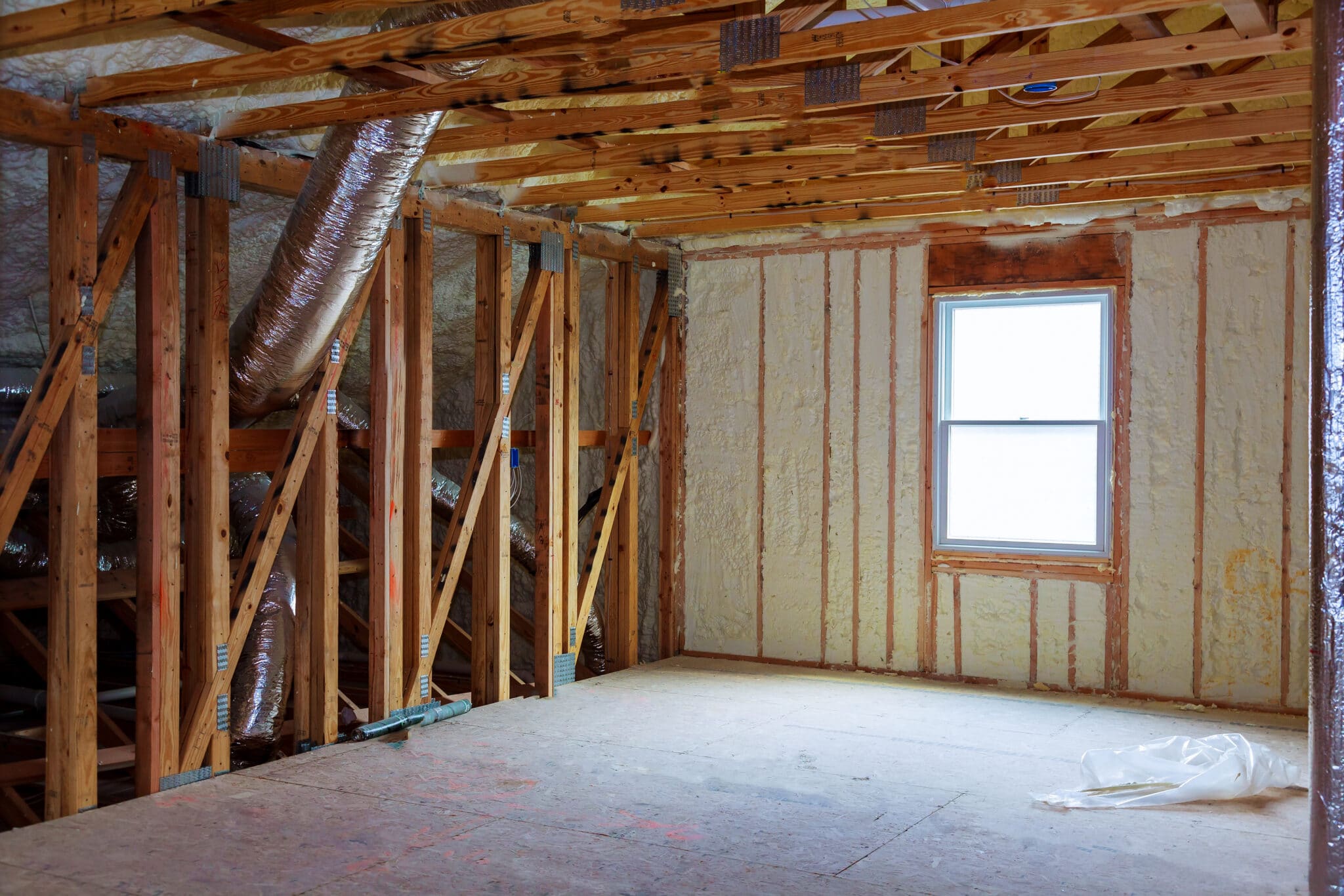Commercial Spray Foam Insulation: Efficient Solutions
In today's commercial construction world, saving energy is key. Imagine a solution that boosts your building's performance and cuts costs. That's where commercial spray foam insulation comes in - a breakthrough in insulation.
Ever thought how your business could gain from this new insulation tech? Let's dive into the amazing benefits of commercial spray foam insulation. We'll show you how it makes your commercial space more comfy, cost-effective, and green.
Key Takeaways
- Discover the different types of commercial spray foam insulation and their unique properties.
- Learn how commercial spray foam insulation can boost your building's energy efficiency and lower your operating costs.
- Understand the versatility and durability of commercial spray foam insulation and how it can be customized to meet your specific needs.
- Explore the wide range of commercial applications for spray foam insulation, from office buildings to industrial facilities.
- Get insights into the installation process and the role of professional contractors in ensuring a seamless application.
Understanding Commercial Spray Foam Insulation
Spray foam insulation is a top choice for commercial buildings. It's made from chemicals that expand and harden, forming a strong seal. This insulation comes in two types: open-cell and closed-cell.
What is Commercial Spray Foam Insulation?
Commercial spray foam insulation is a special material applied with special equipment. It boosts thermal and air sealing in commercial buildings. This reduces energy use and lowers heating and cooling costs. The chemicals mix and expand when sprayed, creating a tough, airtight layer that fits the building's shape.
Types of Commercial Spray Foam Insulation
Commercial spray foam insulation has two main types: open-cell and closed-cell. Open-cell is light and soft, while closed-cell is denser and stiffer. Both are great insulators, but closed-cell is better at sealing air and has a higher R-value. It's often used for commercial roofs. The best type depends on the building's needs.
Read More: Which Type of Spray Foam Insulation is Best?
Benefits of Commercial Spray Foam Insulation
Commercial spray foam insulation brings many benefits for building owners and managers. It's known for its energy efficiency. This insulation seals off air leaks by filling in cracks and gaps. This means better thermal insulation, keeping indoor temperatures steady and cutting down on heating and cooling costs.
This leads to big cost savings on energy bills. So, spray foam is a wise choice for businesses looking to save money.
Read More: Benefits of Spray Foam Insulation
Versatility and Durability
Spray polyurethane foam is versatile, fitting on various building parts like walls, roofs, and odd shapes. It's a flexible option for different building designs and needs. Plus, it's durable, offering lasting protection against weather and keeping its insulating qualities for years.
It stands up well to moisture, pests, and other dangers. This means the building stays energy-efficient and well-protected over time.
Commercial Spray Foam Insulation Applications
Commercial buildings, warehouses, and manufacturing facilities need strong insulation to keep energy use low and climate control steady. Spray foam insulation is a flexible and customizable option for these spaces. It meets the varied insulation needs of different commercial areas.
Spray foam insulation can be shaped to fit the needs of commercial buildings. It creates a tight and airtight seal that boosts energy efficiency. It works well in retail stores, offices, industrial sites, and warehouses. Spray foam can be applied to walls, ceilings, and roofs to better insulate and cut down on energy costs.
Read More: How to Install Spray Foam Insulation? Step by Step Guide
Not only does spray foam insulation insulate well, it also helps block sound. This makes it perfect for places that need quiet or where noise is a problem. Its long life and effectiveness make it a smart choice for insulation over time.
For new or old commercial buildings, spray foam insulation is a top choice. It combines energy efficiency, flexibility, and lasting performance. By choosing skilled foam insulation services and suppliers, businesses can make sure their spaces have the best insulation available.
Read More: Spray Foam Insulation Cost Per Square Foot
The Installation Process for Commercial Spray Foam Insulation
Installing commercial spray foam insulation needs skilled insulation contractors. Before starting, the job site must be ready for a smooth installation.
Preparing the Job Site
First, the job site is cleaned and prepared. This means sealing any cracks or gaps to stop air leaks. Contractors then measure the area to figure out how much foam is needed. This step is key to making sure the insulation is spread out right.
Spraying the Insulation
With the site ready, contractors start spraying the foam. They use special equipment like proportioning units and spray guns. This requires a lot of skill to make sure the foam sticks well and works as it should.
Working with experienced insulation contractors means your business gets top-notch efficient and durable spray foam insulation. This is key for saving energy and cutting costs. The installation is a vital part of a successful spray foam installation project.
Read More: Is it a good idea to spray foam insulation?
FAQ
What is commercial spray foam insulation?
Commercial spray foam insulation is a top-notch insulation for commercial buildings. It's a spray-applied foam that expands and hardens. This creates a seamless, air-tight barrier. It boosts energy efficiency and improves building performance.
What are the different types of commercial spray foam insulation?
There are two main types: open-cell and closed-cell spray foam. Open-cell foam is lighter and more flexible. Closed-cell foam is denser, more rigid, and has a higher R-value. The choice depends on the building's needs and insulation goals.
How does commercial spray foam insulation improve energy efficiency?
It creates a strong air barrier, sealing gaps and preventing air leaks. This keeps the indoor temperature steady, reducing the load on heating and cooling systems. This leads to big energy savings and a smaller carbon footprint for businesses.
What are the benefits of using commercial spray foam insulation?
It boosts energy efficiency and cuts costs. It also offers: - Versatility in application and customization - Durability against moisture, mold, and pests - Better indoor air quality and comfort - Enhanced structural integrity and soundproofing - Less maintenance and long-lasting performance
How is commercial spray foam insulation installed?
Installation includes: 1. Preparing the site by sealing openings and protecting surfaces. 2. Applying the foam with specialized equipment like a spray foam gun. 3. Ensuring even application to the right thickness for the desired R-value. 4. Letting the foam fully expand and cure before finishing.
How much does commercial spray foam insulation cost?
Costs vary by project size, foam type, installation complexity, and location. On average, it costs between $1 to $4 per square foot. For an exact quote, talk to a professional insulation contractor about your project.
What type of equipment is used for commercial spray foam insulation?
You need specialized gear like a spray foam rig or gun for this job. This includes a proportioner, spray gun, compressor, hoses, and mixing chambers. The equipment choice depends on the project's size and foam type.



